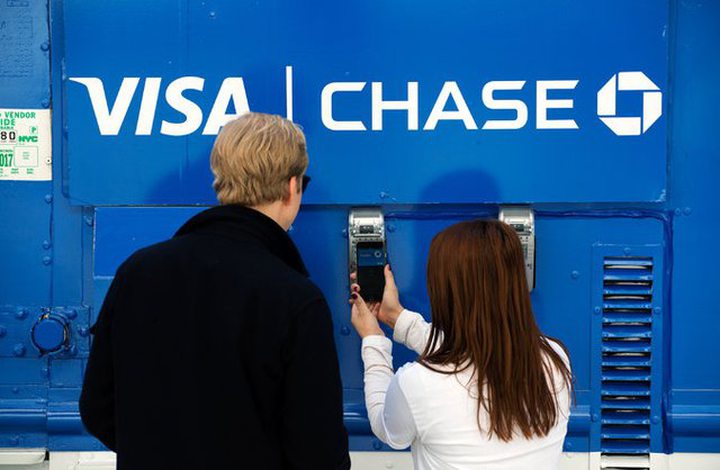Apple Pay Is Disabled by Rite Aid and CVS as a Rival Makes Plans

Over the weekend, Rite Aid and CVS disabled Apple Pay from working in their stores nationwide. The reason was not immediately clear.
Ashley Flower, a spokeswoman for Rite Aid, said the company “does not currently accept Apple Pay.” She added that Rite Aid was “still in the process of evaluating our mobile payment options.”
Representatives from CVS did not respond to repeated telephone and email requests for comment on Sunday.
Analysts said disabling acceptance of Apple Pay was a way to favor a rival system that is not yet available but is being developed by a consortium of merchants known as Merchant Customer Exchange, or MCX. Rite Aid and CVS are part of that consortium, not part of the group of retailers that had teamed up with Apple on its payment system. Nonetheless, over the week, Apple Pay technology was working in Rite Aid and CVS stores.
“Clearly Rite Aid and CVS are making a business decision over a customer satisfaction decision,” said Patrick Moorhead, president of Moor Insights & Strategy.
He added that the move could upset consumers who believe Apple’s new product is easier and safer than paying with a traditional credit card.
Apple declined to comment on the stores’ action. An executive at MasterCard, which has teamed with Apple on its new system, said Rite Aid and CVS made the wrong decision.
“We think consumers should have the ability to pay any way they want,” said Ed McLaughlin, chief emerging payments officer at MasterCard.
“Rite Aid and CVS have been accepting contactless payments for quite a long time,” Mr. McLaughlin added. “We look forward to them turning the functionality back on in their stores.”
Apple has not released data on how popular its new product is. But on Apple Pay’s first day, at Chase banking services seven times more people added Chase credit cards to Apple Pay than signed up for new credit cards, Avin Arumugam, Chase’s digital executive director, said in an interview with Bloomberg.
A great deal is at stake. MCX’s payments system helps merchants keep track of customer shopping habits across the dozens of merchants who plan to accept the payment product. That is a potential treasure trove of data for retailers, who wish to better target consumers with deals and loyalty programs.
This also gives retailers the potential ability to cut credit card companies out of the payments process entirely. MCX’s system, CurrentC, will be linked to a consumer’s debit account, according to the company’s description of the product. By bypassing credit card companies, MCX merchants could potentially save money on the fees they pay per transaction.
MCX retailers include large chains like Best Buy, Gap Inc. and Walmart. Over all, they represent more than $1 trillion in annual sales, 110,000 total stores and more than one-fifth of total United States retail sales volume, according to the coalition.
Technology companies like Google and PayPal, as well as mobile carriers like Verizon and AT&T, have all tried — and failed — to persuade consumers to pay for things with their smartphones.
But many believe that if any company can gain consumer adoption quickly, it’s Apple.
“Apple actually has a really good shot at being successful here because they’ve solved a lot of fundamental issues that others haven’t in the past,” Mr. Moorhead said. “In particular, the user experience issue. It’s simple, easy and secure to use.”
Apple Pay, which works only with the new iPhone 6 and 6 Plus devices, essentially supplants traditional credit cards, allowing users to pay for items at a retailer’s cash register with little more than a wave of their smartphone. The product communicates with payment terminals equipped with so-called near-field communication technology at the checkout counter; currently more than 220,000 retailers accept this technology.
CurrentC will not be available until 2015. When it is released, consumers will be able to download an app and connect it to their debit accounts. Then, every time a person makes a purchase, the merchant must scan a QR code, a special symbol that acts much like a bar code and initiates the payment transfer.
MCX naysayers say that CurrentC is more difficult to use than Apple Pay, which does not require customers to unlock their phones or open an app. And they say it is far more complicated than paying with cash or a credit card.
MCX has time, however, to alter its strategy before releasing its product. And since MCX merchants are all working together, CurrentC could offer consumers enticing deals and loyalty rewards for shopping at any one of the dozens of participating stores.
The battle will surely escalate in the coming months as companies like PayPal and Google update their mobile wallet strategy to deal with the fast-changing market. But for now, many are betting on Apple Pay as the mobile wallet to beat.
“Apple Pay is the most convenient, most secure, and what’s best for consumers,” Mr. McLaughlin of MasterCard said. “That’s what will win out in the end.”





